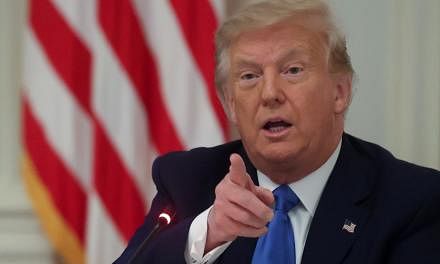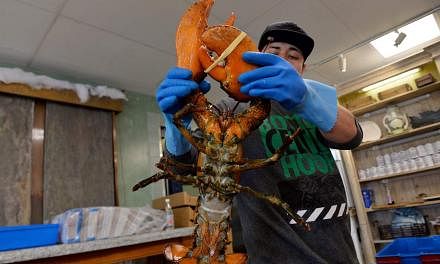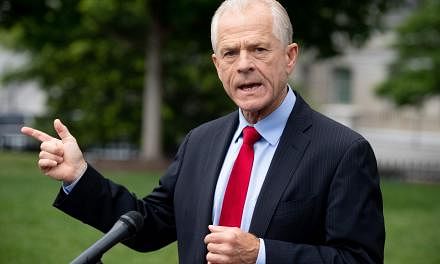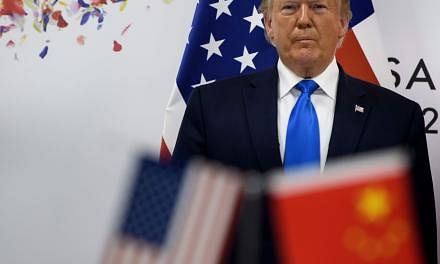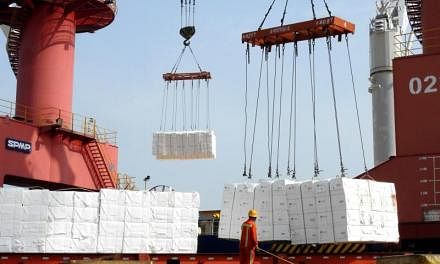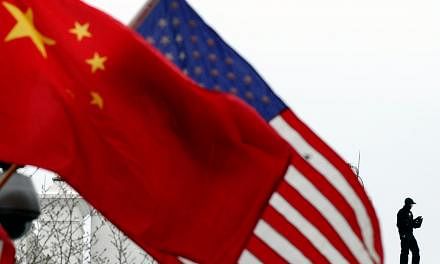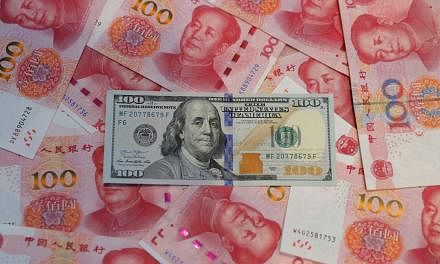A day after China's announcement on Thursday that it had agreed with the US to cancel tariffs on each other's goods in phases, President Donald Trump said that he had not agreed to do so.
Speaking to reporters yesterday morning, Mr Trump said that Beijing would like him to roll back tariffs, adding that he would like to sign the deal in the United States.
The President's comments capped a series of conflicting signals from the White House on how definitive the agreement to roll back tariffs was, following Chinese Commerce Ministry spokesman Gao Feng's announcement on Thursday that negotiators had agreed to remove the additional tariffs in phases as progress was made on the agreement.
A rollback of tariffs is a central Chinese demand and key to the de-escalation of the long-running trade war that has contributed to the sluggishness of the global economy.
But American officials are wary of giving up this leverage when unsure of China's commitment to carry out its end of the deal.
For hours after the Chinese announcement, which landed on Thursday morning in Washington, key US trade officials were silent.
US Trade Representative and chief negotiator Robert Lighthizer, along with Treasury Secretary Steven Mnuchin, gave no formal confirmation of China's statement on Thursday.
White House economic adviser Larry Kudlow appeared to back up the Chinese announcement when he told Bloomberg: "If there's a Phase 1 trade deal, there are going to be tariff agreements and concessions." But White House trade adviser Peter Navarro pushed back, telling Fox Business that negotiations were not yet at that stage.
"Here's what I know. There is no agreement at this time to remove any of the existing tariffs as a condition for the Phase 1 deal, and the only person who can make that decision is President Donald J. Trump, and it's as simple as that," he said.
Mr Navarro suggested that Beijing's announcement was a tactic to pressure the White House to publicly commit to rolling back tariffs.
"That's what I think is maybe going on here, the spectacle of the Chinese propaganda press putting out information like that. They're just negotiating in public, trying to push us in a direction. But the President makes these decisions," he said.
"We're going to have a Phase 1 deal with the Chinese, on the President's terms. But Dec 15 looms, that's when the next tranche of tariffs will go on, and the reason why the Chinese complain about the tariffs is that they're working beautifully," he added, referring to the upcoming tranche of US$160 billion (S$218 billion) of imports from China, including many consumer electronics items.
Mr Navarro repeated his position to NPR Radio yesterday morning, but added: "What is on the table is tariffs coming in Dec 15. We would be willing, I think it's up to the President to postpone those tariffs, but not roll back any existing tariffs."
White House press secretary Stephanie Grisham told Fox Business yesterday: "We're very optimistic for some kind of a deal, and I imagine if we reach one, then some tariffs could be lifted."
Analytics firm Oxford Economics' chief US economist Gregory Daco stressed that both Mr Kudlow and the Chinese Commerce Ministry had qualified their statements by saying that tariffs would be rolled back if a preliminary deal was reached.
"Every word counts," he wrote on Twitter, highlighting their use of the word "if" and pointing to earlier reversals of position.
"Remember we were close to a deal in April and May and yet we now have tariffs on two-thirds of imports from China," he added.
Analysts cautioned that the deal might yet fall through, although the White House was eager for an agreement.
Mr Trump and Chinese President Xi Jinping were expected to sign a preliminary agreement at the Asia-Pacific Economic Cooperation summit that was to be held in Chile next week, but the summit was cancelled due to large-scale protests.
The signing is likely to be delayed until at least next month, as both sides continue to hammer out the terms of the deal and venue for the signing.
Wall Street nonetheless rose on Thursday on signs of a breakthrough in trade talks.
The Dow Jones Industrial Average rose 0.66 per cent, or 182.24 points, to close at 27,674.80, while the S&P 500 and Nasdaq Composite both closed 0.3 per cent higher.
• Additional reporting by Tan Dawn Wei in Beijing



